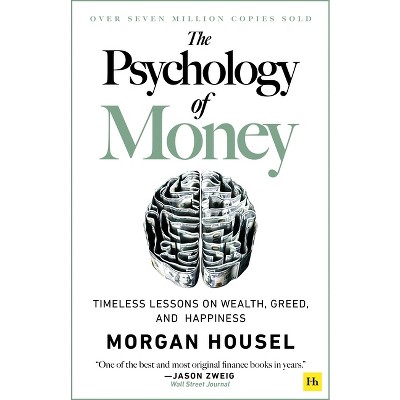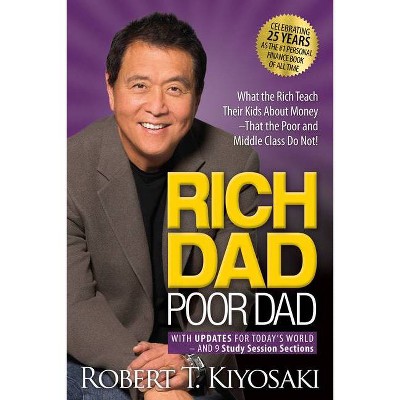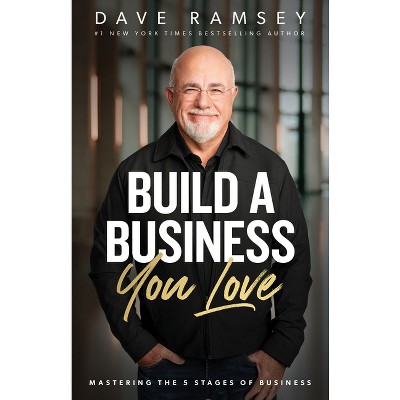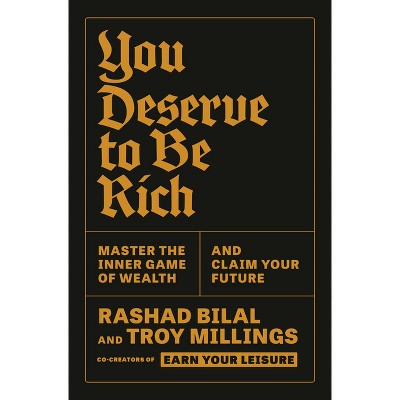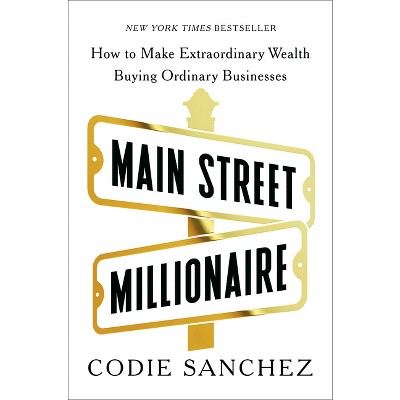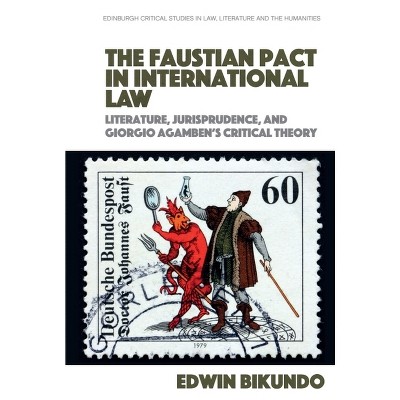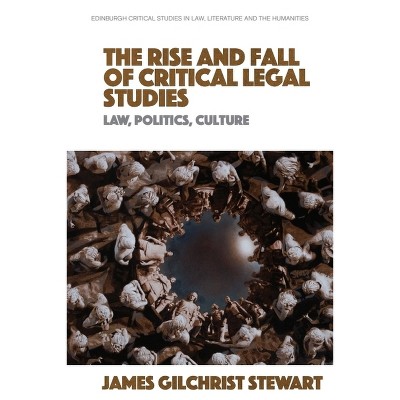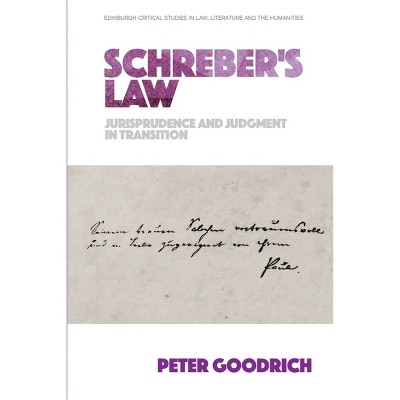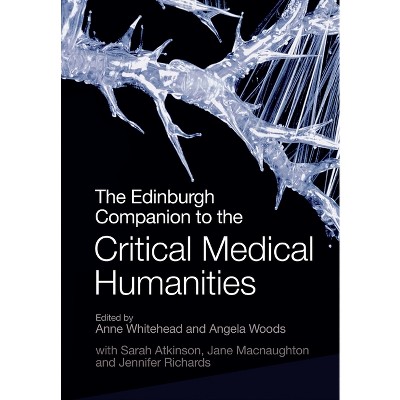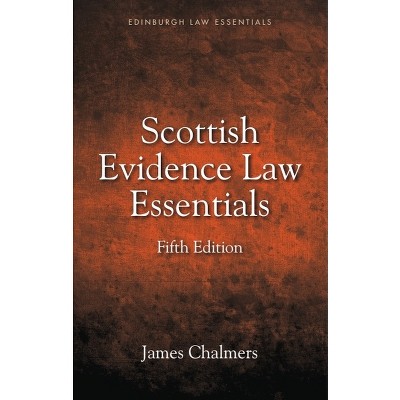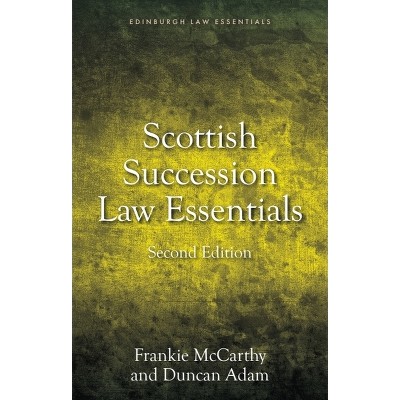The Lawful Forest - (Edinburgh Critical Studies in Law, Literature and the Humanities) by Cristy Clark & John Page (Paperback)

About this item
Highlights
- Using the forest as a thematic device, Clark and Page explore the tensions that pervade our propertied relationships; between commodity and community, abstraction and context, and private enclosure and the public square.
- About the Author: Cristy Clark is an Associate Professor of Law in the Faculty of Business, Government and Law at the University of Canberra, Australia.
- 248 Pages
- Freedom + Security / Law Enforcement, Jurisprudence
- Series Name: Edinburgh Critical Studies in Law, Literature and the Humanities
Description
About the Book
Using the forest as a thematic device, Clark and Page explore the tensions that pervade our propertied relationships: between commodity and community, abstraction and context, and private enclosure and the public square.
Book Synopsis
Using the forest as a thematic device, Clark and Page explore the tensions that pervade our propertied relationships; between commodity and community, abstraction and context, and private enclosure and the public square. They draw on a range of case studies including the 13th century Forest Charter, Thomas More's Utopia, the Diggers' radical agrarianism, the Paris Commune's battle for the right to the city, and Australian forest protestors of the late 20th and early 21st centuries. By analysing these movements and their contexts, Clark and Page illustrate the origin, history and legal status of the lawful forest and its modern-day companions. Although the dominant spatial paradigm is one where private rights prevail, this book shows that communal relationships with land have always been part of our law and culture.From the Back Cover
Views the 'lawful forest' as both a material forest of trees, and a metaphor for a more relational understanding of law, property and place This book is a study of the critical history of space, and the ways in which a dominant property ideology has entrenched an exclusionary and profoundly alienating version of spatial ordering. It focuses on select periods in time, when the seemingly linear trajectory of enclosure momentarily wavers and alternate spatial paths briefly materialize, before 'disappearing' from plain sight. Using the forest as a thematic device, Clark and Page explore the tensions that pervade our propertied relationships; between commodity and community, abstraction and context, and private enclosure and the public square. The book draws on a range of case studies including the 13th century Forest Charter, Thomas More's Utopia, the Diggers' radical agrarianism, the Paris Commune's battle for the right to the city, and Australian forest protestors of the late 20th and early 21st centuries. Through analysis of these movements and their contexts, the authors illustrate the origin, history and legal status of the lawful forest and its modern-day companions. Although the dominant spatial paradigm is one where private rights prevail, this book shows that communal relationships with land have always been part of our law and culture. Key Features: - A wide-ranging exploration of our diverse relationships with land - Brings together critical property theory and legal geography - Explores spatial justice, Indigenous perspectives, and the intersecting discourses of property and human rights - Draws on the literature of critical common law property, legal geography, the radical commons, legal custom, protest and the forest - Line drawings at the beginning of each chapter use the imagery of the forest to create thematic links between each section Cristy Clark is a Senior Lecturer in the Faculty of Business, Government and Law at the University of Canberra, Australia. John Page is a Professor of Law in the Faculty of Business, Law and Arts at Southern Cross University, Australia.Review Quotes
A must-read for scholars thinking about how traditional legal concepts like property law need to be reimagined in the Anthropocene.--Arpitha Kodiveri "Review of European, Comparative & International Environmental Law"
The Lawful Forest is an important contribution to legal history, one that may alter perceptions of the natured history of law for those of conventional property scholarship as well as those more akin to critical property studies, decolonial and post-Marxist scholarship. The work is important for anyone working on understanding the history of the common law and its connection with property forms, where lost accounts of the shaping of black-letter law can be just as useful for a property law professor as for their students.The connecting of custom, nature and community in this text, offers an invaluable archive of all those past and future, in the task of a 'figurative yearning for a spatial life lived better' (39).--Lucy Finchett-Maddock "The Modern Law Review"
The Lawful Forest is an important contribution to legal history, one that may alter perceptions of the natured history of law for those of conventional property scholarship as well as those more akin to critical property studies, decolonial and post-Marxist scholarship. The work is important for anyone working on understanding the history of the common law and its connection with property forms, where lost accounts of the shaping of black-letter law can be just as useful for a property law professor as for their students.The connecting of custom, nature and community in this text, offers an invaluable archive of all those past and future, in the task of a 'figurative yearning for a spatial life lived better' (39).
--Lucy Finchett-Maddock "The Modern Law Review"This highly original and thought-provoking book takes a scholarly and eclectic approach to thinking about property. Its shift in analytical lenses reveals debates about resources and assets, combining theoretical and pragmatic insights to raise distinctive research questions.
-- "Antonia Lanyard, University of Oxford"About the Author
Cristy Clark is an Associate Professor of Law in the Faculty of Business, Government and Law at the University of Canberra, Australia. Her research focuses on legal geography, the commons, and the intersection of human rights, neoliberalism, activism and the environment.
John Page is a Professor of Law at the University of New South Wales, Australia. His research explores the diversity of property in the common law tradition, and how property intersects with public space and the materiality of place.

